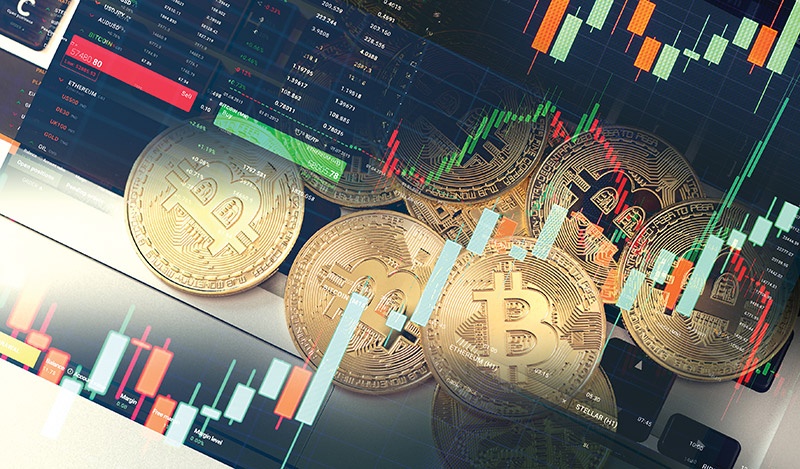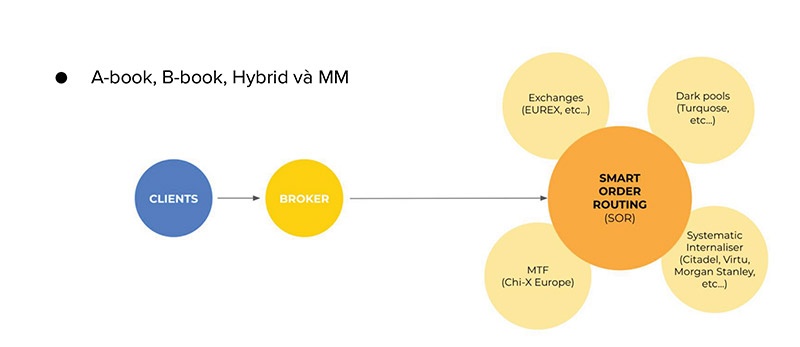Being poised for tech explosion in finance
 |
| Investors must keep on top of the latest developments in investment channels, as digitalisation pushes things further and faster |
At a mid-July seminar hosted by Vietnam Investment Review, Exness representative Thai Viet Dung stressed that history shows humanity always reaching breakthrough achievements in technology.
“We have also seen the birth of new financial models that break old methods and update the latest technology trends,” Dung said. “Decentralisation in the financial industry and the creation of new structures and models that are more solid and energetic than those that have been successful before are accelerating.”
With the rush to accelerate the use of online payment over the past few years, new funding channels are opening up. Besides traditional channels such as real estate, securities, bonds, gold, and foreign currencies, the market has developed and perfected a variety of new investment corridors.
Dung added that new opportunities will always appear in the market, whether it is on an upward or downward trajectory. This is not a small challenge for businesses that are developing products related to the financial sector.
 |
| Types of Financial Models |
Similar to how the internet turned entire industries on their heads, blockchain has the potential to be the next big thing, Dung said. It is predicted that the technology will really take off in the next decade if it can be developed to a point where it is ready for commercial application, rewarding early investors’ faith 1,000 times over.
Most people immediately think of cryptocurrencies when they hear the word “blockchain.” But the blockchain is the underlying technology of cryptocurrencies, powering almost all of the digital assets available on the market while fostering decentralisation, high security, transparency, and peer-to-peer interactions.
Stanislav Bernukhov, a market analyst at multi-asset firm Exness, told VIR that the current economy is only now beginning to use blockchain technologies. “In addition to validating financial transactions and developing secure payment protocols, blockchain has various applications, including supply chains, project management, and government,” Bernukhov stated.
The market for blockchain technology is anticipated to have increased at a compound annual growth rate (CAGR) of 56.9 per cent, from $5.5 billion in 2021 to $8.61 billion this year. The companies stabilising their output after meeting the demand that increased rapidly during the pandemic last year is mostly the cause for the change in the growth trend.
At a CAGR of 54 per cent, the market is anticipated to reach over $48 billion by 2026, according to the Blockchain Technologies Global Market Report 2022, released by Reportlinker.com.
Le Van Duong, partner at Indochine Counsel, said that technology brings more chances for investors to choose new investment channels. However, he suggested that investors have to update their knowledge to protect themselves within the boundaries of Vietnamese law.
“It is well known that there are currently no laws or regulations in Vietnam that specifically address cryptocurrency. Guidelines for this field can be inferred from some currently in effect legal regulations, such as those on non-cash payments, as well as from a variety of legal instruments, including the prime minister’s orders and official letters or dispatches of the State Bank of Vietnam,” Duong noted.
Exness is one of the industry’s top brokerage firms, offering online trading services in cryptocurrencies such as but also in stocks, indices, commodities, and currency pairs.
Currently, there are myriad modes of financial investment worldwide. With respect to those powered by electronic platforms there are four models: A-book, B-book, Hybrid, and MM (market maker). The most conventional model is A-book, where the brokers receive orders from their investors, then send these orders to different exchanges leveraging an IT platform. To outperform their rivals, the IT platform must be powerful. Of the four models, MM is the smartest and is mandated to satisfy two factors: having hefty finance and a top-notch IT platform. MM’s prevailing advantage is its capacity to create smart algorithms capable of offering multi-price levels instantly, thus entailing ample liquidity for the market. This model is currently optimal but there are only about 40-50 market makers globally. Currently, Vietnam just utilises the most conventional model, A-book, at securities firms. As such firms remain modest in number, at around several dozen units, there has not been stiff competition among firms in terms of technology. In the forthcoming time, to learn from the advanced worldwide model, it is important that more finance firms and organisations become licensed to offer the services of a securities firm. The more entities join the game, the more competition will heat up, pushing firms to invest intensively in technology and providing the springboard towards the next phase of development. As of now, there are many potential fields. Banks, for example, have very strong fundamentals in terms of customers and their money stream management, as well as having a good grip on their customers. Due to legal roadblocks, they cannot perform the role of securities firms. If all capable units were licensed to offer the service, it would help scale up market liquidity, making the stock market increasingly vibrant to attract investors, from there driving national economic development. |
What the stars mean:
★ Poor ★ ★ Promising ★★★ Good ★★★★ Very good ★★★★★ Exceptional
Related Contents
Latest News
More News
- Banking sector targets double-digit growth (February 23, 2026 | 09:00)
- Private capital funds as cornerstone of IFC plans (February 20, 2026 | 14:38)
- Priorities for building credibility and momentum within Vietnamese IFCs (February 20, 2026 | 14:29)
- How Hong Kong can bridge critical financial centre gaps (February 20, 2026 | 14:22)
- All global experiences useful for Vietnam’s international financial hub (February 20, 2026 | 14:16)
- Raised ties reaffirm strategic trust (February 20, 2026 | 14:06)
- Sustained growth can translate into income gains (February 19, 2026 | 18:55)
- The vision to maintain a stable monetary policy (February 19, 2026 | 08:50)
- Banking sector faces data governance hurdles in AI transition (February 19, 2026 | 08:00)
- AI leading to shift in banking roles (February 18, 2026 | 19:54)


 Tag:
Tag:




















 Mobile Version
Mobile Version